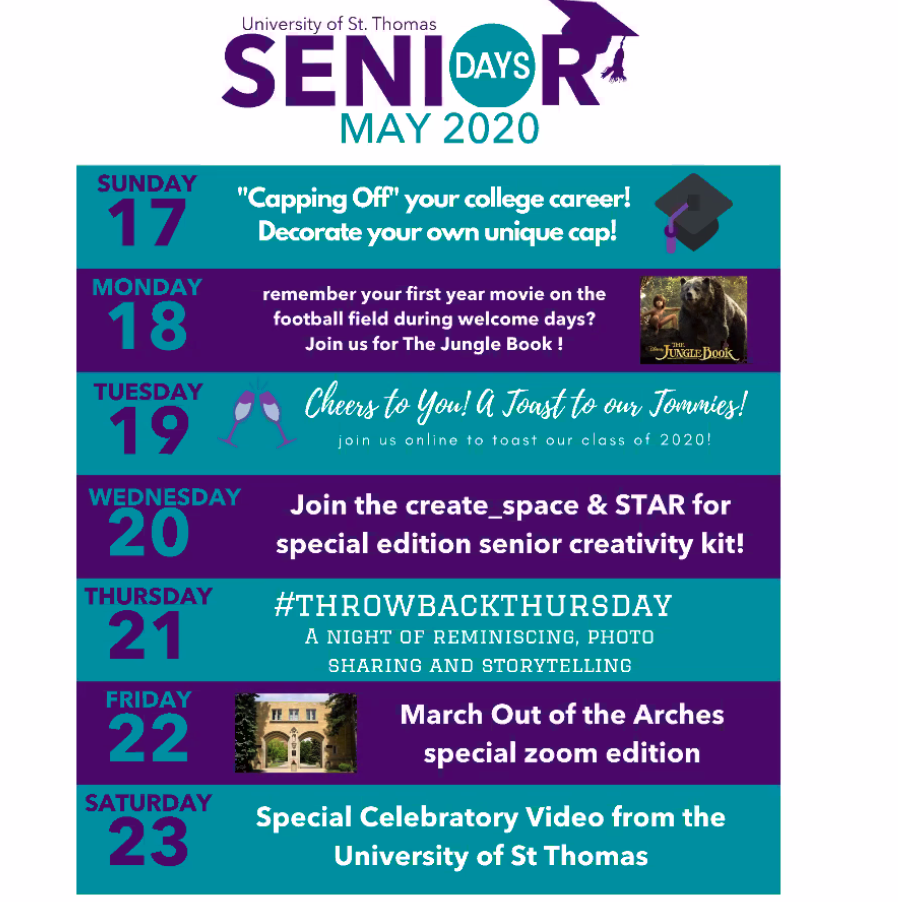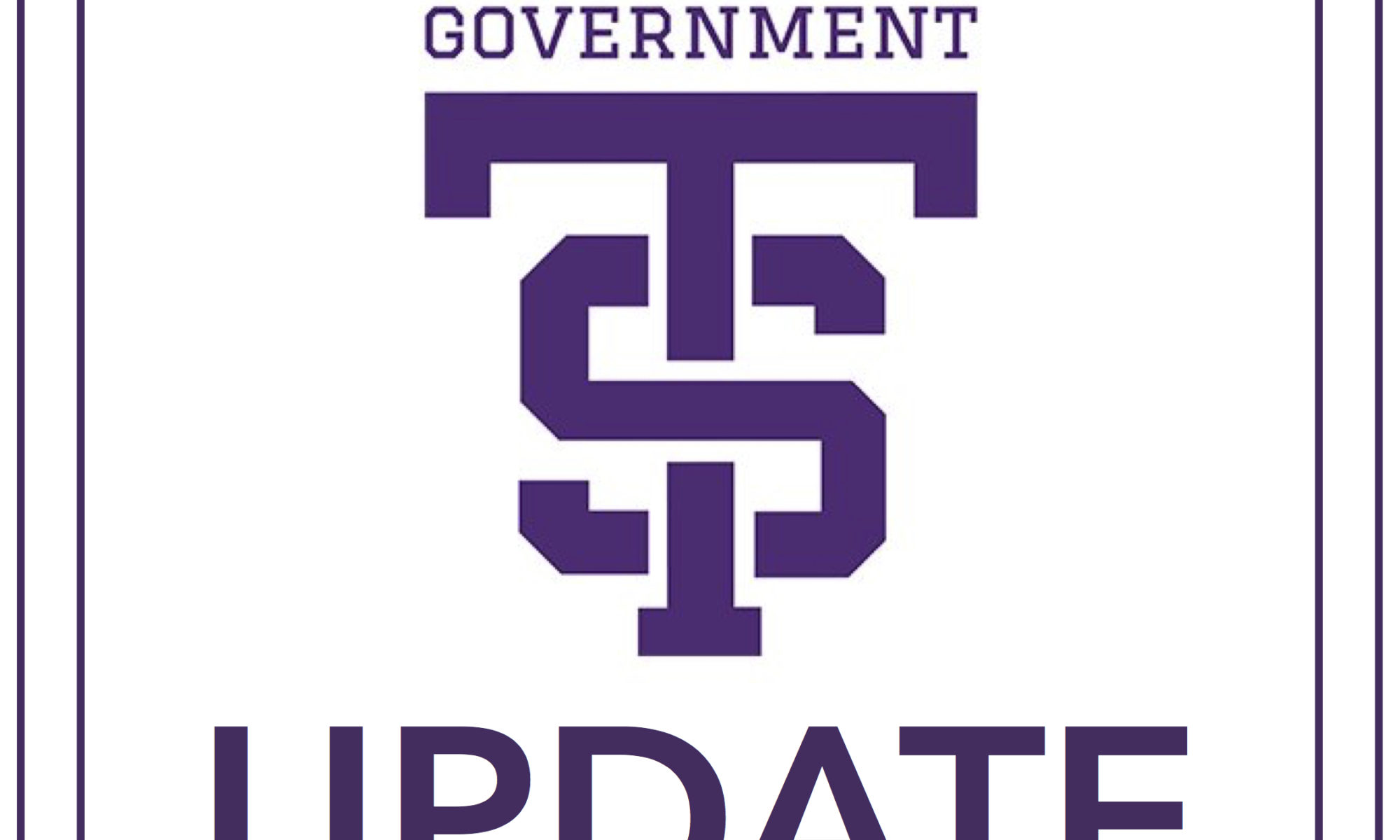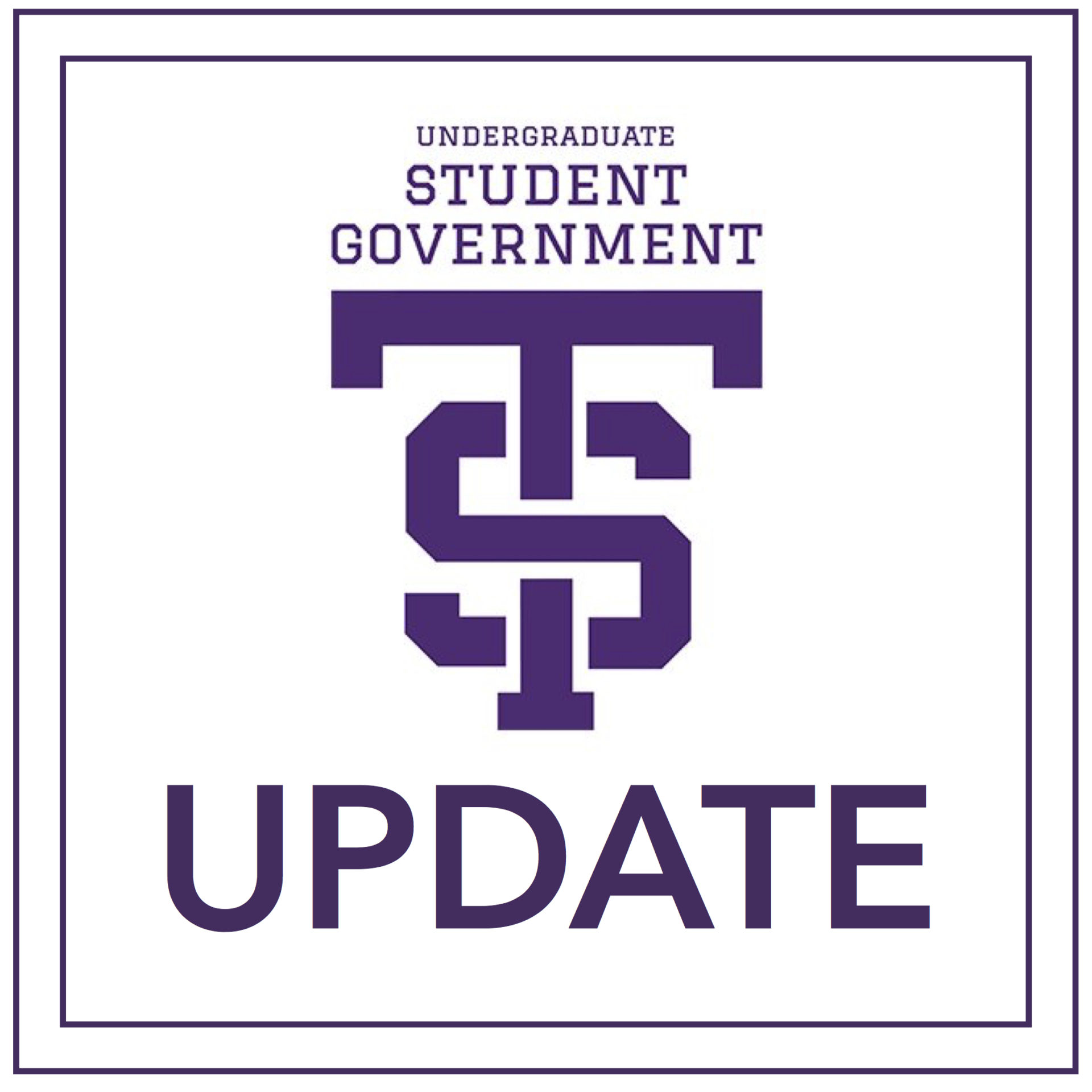University administrators Sheneeta White and Kris Wammer spoke, spring elections changes were announced and various university updates were discussed at the Undergraduate Student Government general council meeting Thursday, April 16.
Guest Speakers: Sheneeta White & Kris Wammer
White of Academic Affairs and Wammer of the College of Arts and Sciences answered questions from the board regarding potential partial refunds, the university’s recent decision to move to S-D-R (pass/fail) grading for the spring semester and concerns regarding online course delivery.
Students have the option to opt to traditional grading for some or all of their classes, with a deadline of May 1. Vice President of Public Affairs Michael Sullivan questioned the solidity of that deadline, and White said that the deadline is firm.
“It will give the registrar time to do all the things that they need to do on the back end,” White said. She stated that once a student elects to go to traditional grading, they will not be allowed to revert back to S-D-R grading.
Haison Nguyen, first-year class president, relayed concerns he has heard from students about transitioning to S-D-R and effects that it may have in the future.
“Everybody’s in the same boat,” White said. “We’re not an outlier in terms of doing pass/fail grading, basically every other university around here is doing the same thing.”
The Office of Student Data and Registrar will be placing a notation on all transcripts with pass/fail grading noting what is considered a “pass,” which is a C- or better.
The Dean’s List will still be announced this semester, along with Latin honors for graduating students, but students will have to go to traditional grading for three of their classes to obtain a semester GPA.
According to university policy, “a student who attains a grade point average of 3.50 or more at the end of a semester in which they have taken at least twelve credits for regular grades will be placed on the Dean’s Honor List.” Students wanting to go on the list or receive Latin honors may only take one class S-D-R this semester.
Malcolm Lawson, senior class president, asked about the university not giving a partial refund on tuition and fees, noting that students are paying fees for things that they can no longer use such as facilities and labs. These items were brought up in a petition started by St. Thomas sophomore JayZee Brown, which has over 1,100 signatures as of April 22.
Wammer explained that labs bear no credit, which is done intentionally to the advantage of students as a money saver.
“You’re not paying extra credits for a lab, but you are paying a lab fee,” Wammer said. “That fee is sometimes paying for the facilities and materials, but it’s also paying for the instruction.”
As far as activity fees go, Student Affairs is delivering co-curricular activities in a virtual online format.
“We understand everyone is struggling,” White said. “We don’t want to be cold … we’re trying to deliver the same services and things that we have always given to you all in a remote format to the best of our abilities.”
Vice President of Administrative Affairs Joel Gmach asked about technological abilities of professors and how it has been affecting students during the online learning period. White admitted that there is “a significant amount of variation” in St. Thomas courses.
“There are some professors who I’ve heard are hitting it out of the park and are doing a great job,” White said. “There are others who are struggling a bit with it.”
The university will be amping up training this summer for faculty, more specifically for faculty holding classes in the summer which were also all moved online, according to White.
Spring elections
Spring election dates have been extended “in hopes that we can have the majority of our positions filled” and so the council “can be as full as possible” going into summer, according to Student Body President Logan Monahan.
“We wanted to make sure that we were being equitable with the amount of students that we’re reaching,” Monahan said.
Packets and endorsements will be due April 22, extended one week from the original deadline of April 15.
Elections are slated for May 4 and 5.
Transition letter proposal
A proposal by Adam Revoir, legislative affairs senator, was presented to the council regarding transition letters for all new USG members.
Currently for executive board positions, a transition letter is created by the current sitting member for new elects into their position explaining what each person does in their role and gives contact information for people they are in frequent contact with.
“I think that would be applicable to all USG members, just being able to have a nice transition from people that aren’t familiar with USG to those that are,” Revoir said.
The proposal was unanimously passed, without much comment.
Senior class updates

A list of the planned St. Thomas Senior Days activities. Student Affairs is planning virtual engagement events for seniors during finals week. (Photo courtesy of Student Affairs)
Lawson and Director of Campus Life Margaret Cahill spoke on commencement and online Senior Days activities.
Each senior will be mailed their cap, which can be designed online, and gown along with any sashes that they have received, to use for a to-be-determined commencement.
“The Jungle Book,” the movie shown during Welcome Days four years ago, will be shown via Netflix Party. St. Thomas Activities and Recreation is collaborating with the create[space] to host an online event where students can build a “special edition senior creativity kit” and the Dean of Students office is hosting a Throwback Thursday event online where students can share photos, tell stories and reminisce on their past years in college.
Students can march out of the arches via Zoom, and students can see a “special celebratory video” from the university on May 23, the original date of commencement. This video is not a replacement for graduation.
“We’re still looking at other potential opportunities,” senior class senator Kate Dolan said regarding an in-person celebration.
Emergency fund update
As of meeting time, 485 students have requested emergency funding via the Student Affairs emergency fund: 339 undergraduates, 61 Dougherty Family College students and 81 graduate students.
The emergency fund is funded by donors and USG on top of the allotment the university normally provides each semester.
As of now, $149,000 have been allocated thus far for students, and “checks are still being processed.”
“This is just showing the huge impact that this fund has and the huge need that there was across campus for something like this,” Monahan said.
Justin Amaker can be reached at justin.amaker@stthomas.edu.


